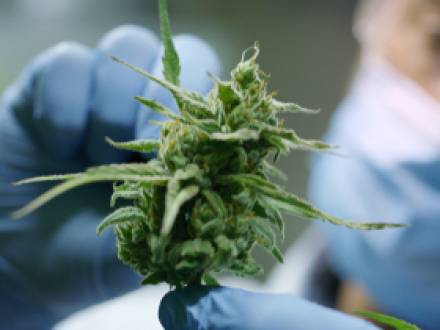TELEPHONES ANSWERED 24 HOURS A DAY
What Happens if You Are Charged with Cultivating Drugs on Federal Land?
 Drug cultivation is a serious offense in any context, but when the activity takes place on federal lands — such as national forests, parks, or wildlife refuges — the legal consequences are far more severe. Federal authorities have jurisdiction over these areas, and drug offenses committed on federal property are prosecuted under federal law. For anyone facing these charges, understanding the nature of the offense and potential penalties is critical. Call our Illinois federal criminal defense attorney right away if you are facing federal drug charges of any kind.
Drug cultivation is a serious offense in any context, but when the activity takes place on federal lands — such as national forests, parks, or wildlife refuges — the legal consequences are far more severe. Federal authorities have jurisdiction over these areas, and drug offenses committed on federal property are prosecuted under federal law. For anyone facing these charges, understanding the nature of the offense and potential penalties is critical. Call our Illinois federal criminal defense attorney right away if you are facing federal drug charges of any kind.
Why Is Cultivation on Federal Land Treated Differently?
Federal land is owned and managed by the United States government, and crimes committed there fall under federal jurisdiction. This means that even if a substance like cannabis has been decriminalized or legalized under Illinois state law, cultivation on federal property is still a crime under the federal Controlled Substances Act.
Agencies such as the Drug Enforcement Administration (DEA), U.S. Forest Service, and Bureau of Land Management may be involved in investigating and prosecuting these cases. Prosecutors tend to take an aggressive stance on these charges due to concerns about environmental damage, public safety, and organized criminal activity.
What Is the Legal Definition of Drug Cultivation?
Under federal law, drug cultivation includes the growing, harvesting, or manufacturing of controlled substances. Marijuana cultivation remains illegal at the federal level, regardless of state laws. When cultivation occurs on federal land, it may trigger additional charges such as:
-
Destruction of natural resources
-
Trespassing on federal property
-
Possession of firearms during a drug trafficking offense
-
Conspiracy to manufacture or distribute a controlled substance
What Are the Potential Penalties for Drug Cultivation on Federal Property?
The penalties for cultivating drugs on federal land depend on the type and quantity of the drug, whether weapons were involved, and the person’s prior criminal record. Some of the possible consequences include:
-
Mandatory minimum prison sentences for large quantities of marijuana or other controlled substances
-
Enhanced sentencing for cultivation near protected wildlife areas, waterways, or recreational trails
-
Significant fines, often exceeding $250,000
-
Forfeiture of property used in connection with the offense
-
Federal probation or supervised release following a prison term
If the case involves more than one person, prosecutors may also pursue conspiracy charges, which can result in harsher penalties than cultivation alone.
Are There Defenses to Charges of Growing Drugs on Federal Property?
Every case is unique, and a skilled federal criminal defense lawyer will examine all available defenses. Common defenses to cultivation charges on federal land include:
-
Lack of knowledge of the cultivation site’s location on federal property
-
Unlawful search and seizure, if evidence was obtained in violation of the Fourth Amendment
-
Mistaken identity, particularly in cases involving large, remote grow operations
-
Lack of intent, if the person charged was not knowingly involved in the cultivation
Contact a Chicago, IL Federal Criminal Defense Lawyer
Federal drug charges carry life-changing consequences, especially when they involve federal land. If you or someone you love has been charged with cultivating drugs on federal property, contact an Illinois federal drug crimes defense attorney at Law Offices of Hal M. Garfinkel LLC, Chicago Criminal Defense Attorney. Call 312-629-0669 today to schedule a free consultation and begin building a strong, evidence-based defense.




